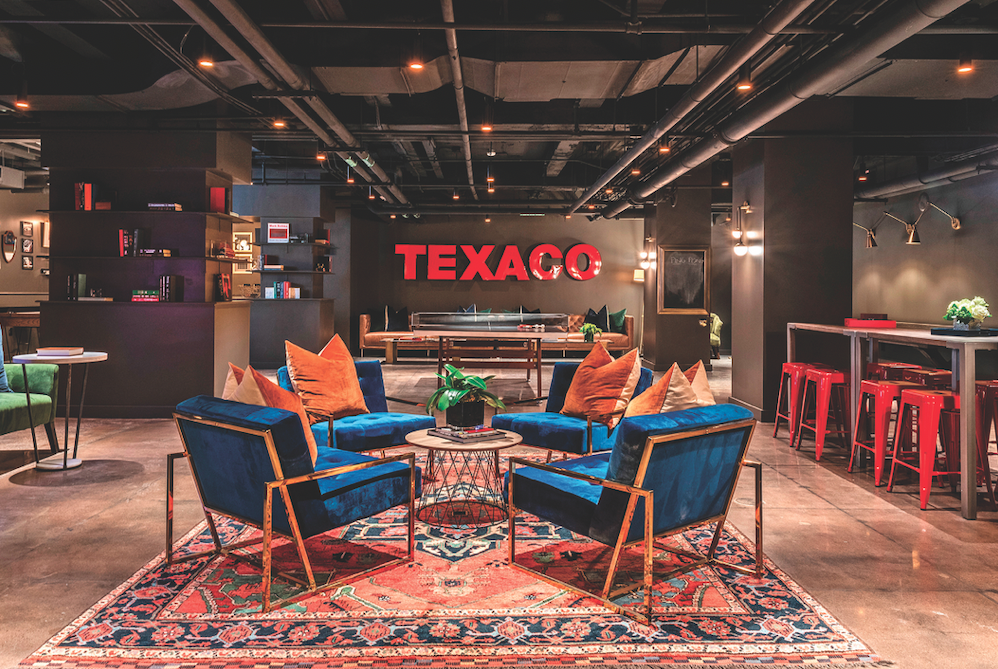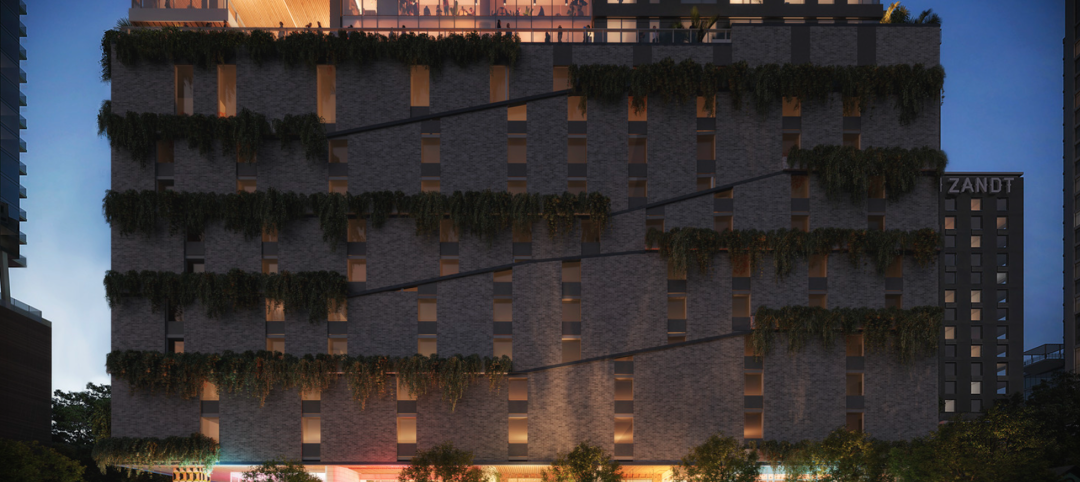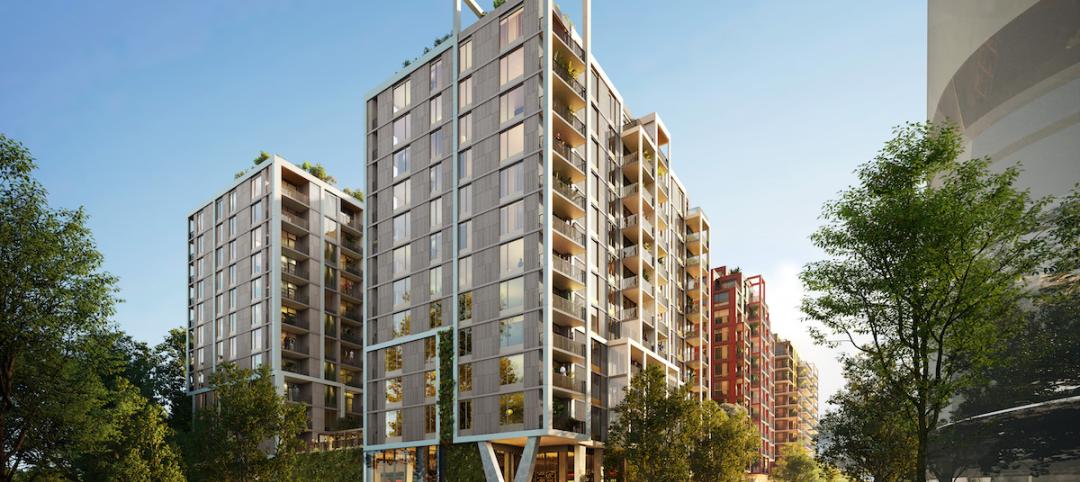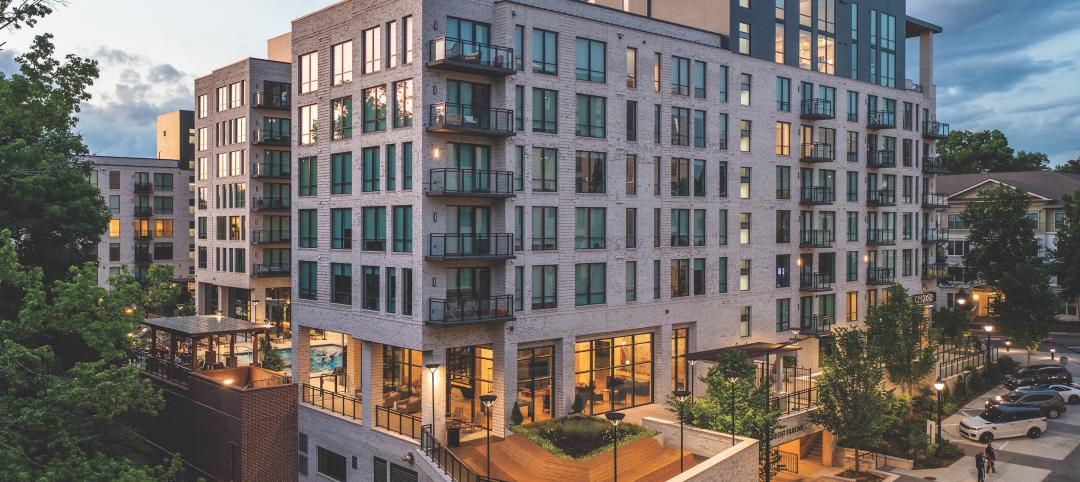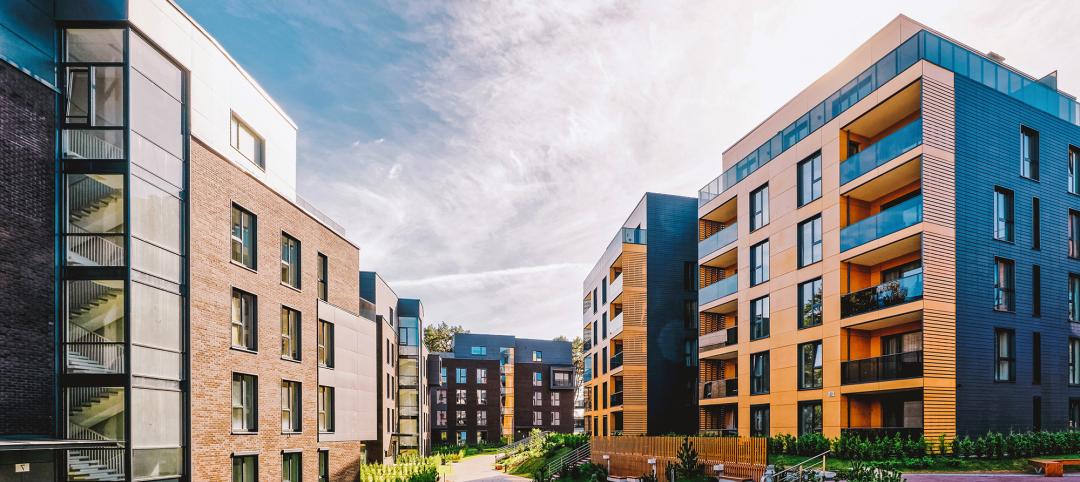After sitting vacant for nearly three decades, the former home of Texaco, Inc. has been converted into a 17-story, 286-unit apartment building in the heart of downtown Houston.
Dallas-based Provident Realty Advisors, which led the $99.5 million enterprise, renamed the property “The Star” as a tribute to the oil giant’s logo—“the big bright Texaco star!” in the old advertising jingle. The redevelopment came on the heels of several unsuccessful attempts to turn the building into a hotel in the years following Texaco’s relocation to the Houston suburbs in 1989.
“It was a beautiful but derelict building right in the center of the new downtown core, surrounded by new office developments, shopping, entertainment, and nightlife,” said Kip Platt, Director of Development and Acquisitions at Provident Realty Advisors.
The Renaissance Revival–style building features a brick, terracotta, and limestone façade, with signature vaulted arcades at street level that promote pedestrian activity. The original 13-story building, completed in 1915, was designed by Warren and Wetmore, a New York architecture firm whose portfolio includes Manhattan’s Grand Central Terminal. A 1938 annex expansion and a 16-story addition, completed in 1958, bulked up the structure to fill a city block. In 2003, the building was placed on the National Register of Historic Places.
The redevelopment team worked closely with the National Park Service and the Texas Historical Commission to qualify for federal and state historic tax credits. The Star was also the first project to benefit from Houston’s new Downtown Living Initiative, which awards $15,000/unit in tax incentives to developers who create new residential projects in the urban core.
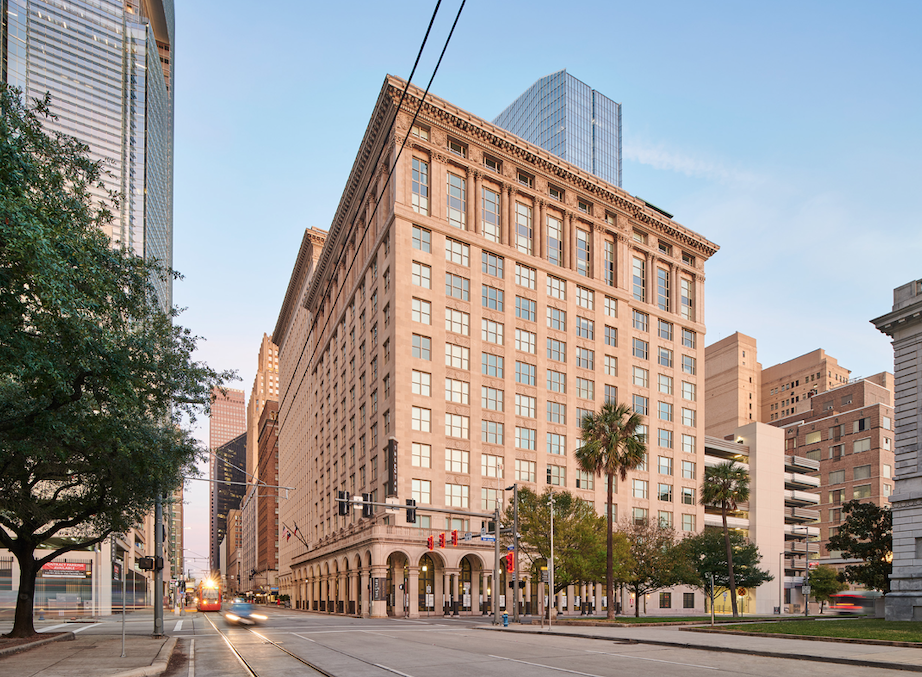 At one time a “ beautiful but derelict building,” according to developer Kip Platt, Provident Realty Advisors, The Star now provides 286 luxury apartments in downtown Houston. The original 17-story structure, completed in 1915, was placed on the National Register of Historic Places in 2003. Photo: Peter Molick
At one time a “ beautiful but derelict building,” according to developer Kip Platt, Provident Realty Advisors, The Star now provides 286 luxury apartments in downtown Houston. The original 17-story structure, completed in 1915, was placed on the National Register of Historic Places in 2003. Photo: Peter Molick
“Most of the structural elements were in really good shape. The building just needed some thorough cleaning, repair, and restoration,” said Robert Jurbergs, AIA, LEED GA, Principal at HBG Design, the Memphis-based architecture firm that oversaw the redesign.
HBG followed strict historic preservation requirements in restoring the structure’s distinctive features, notably its limestone columns, mosaic tiles, decorative chandeliers, bronze grilles, and historic clock. To improve thermal performance, the project team added exterior envelope insulation and specified new energy-efficient windows. “We went back to the original blueprints to ensure the new window profiles were as true to the original wood detailing as possible,” said Jurbergs.
The most pressing problem was how to fit a high-efficiency mechanical system with an additional layer of plumbing, fire protection lines, and mechanical ducts for apartments into a century-old office building.
According to Mark Weaver, FAIA, Principal at HBG Design, the project team circumvented this obstacle by building a 66,000-sf extension on the back side of the original L-shaped building, where historic preservation restrictions were less stringent. This gave them five more high-ceiling apartments with balconies on each floor. They also carved out a cozy outdoor courtyard for a heated, resort-style swimming pool.
The project team squeezed in a nine-level, 750-space parking garage for use by both residents and the general public. The Star sits on the city’s light rail system and ties into the Houston tunnel system, a network of subterranean pedways that links 95 city blocks.
STEPPING BACK INTO HISTORY
The Star’s interior spaces blend contemporary styling with intentional nods to its origins. Large-scale historical photos of the original structure are prominently displayed in the majestic ground-floor lobby. The original Texaco brass elevators have been emboldened with a black geometric design that runs throughout the building.
“It made sense to highlight this amazing, architecturally significant building rather than trying to hide it or make people think it was a new building,” said Lauren Parsons, a design and branding consultant who led the interior design of the amenity spaces. “I wanted it to have a timeless look.”
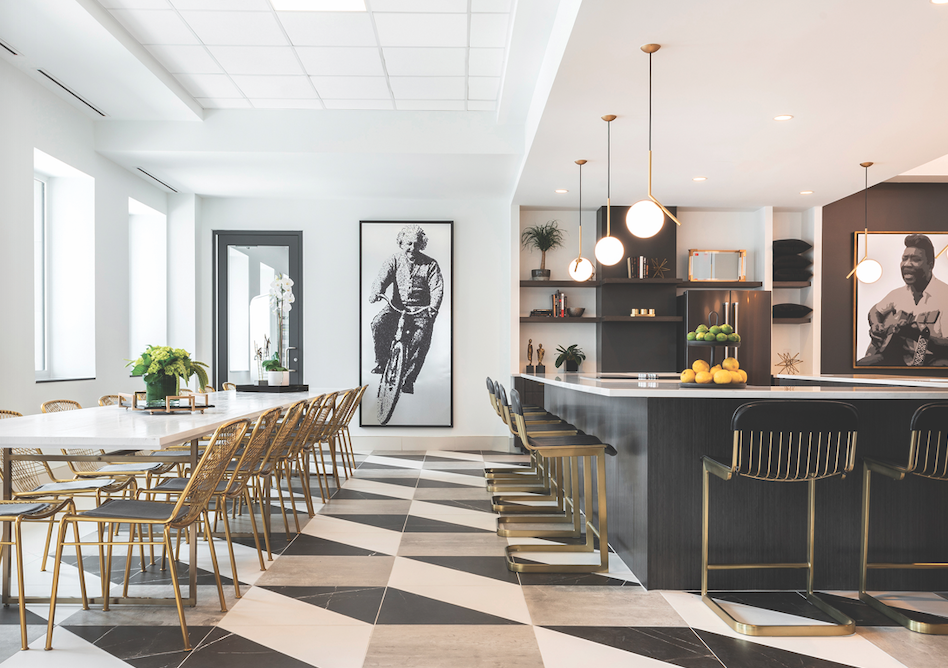 Photos of Albert Einstein, Muddy Waters, and others linked to the year 1915 embellish the 17th-floor amenities space, which has a lounge, display kitchen, and Equinox-inspired fitness center. Photo: Lauren Parsons
Photos of Albert Einstein, Muddy Waters, and others linked to the year 1915 embellish the 17th-floor amenities space, which has a lounge, display kitchen, and Equinox-inspired fitness center. Photo: Lauren Parsons
Parsons lived in the building as it was being completed. She curated an eclectic mix of Texaco memorabilia from former employees and collectors for display in the expansive basement game room and lounge area, a dimly lit space that takes its cue from Prohibition-era speakeasies.
The property has 207 one-bedroom and 79 two-bedroom units, with 22 different floor plans ranging from 730 to 1,730 sf, on levels two through 16. Apartments have 11-foot ceilings, quartz countertops, custom cabinetry, stainless steel appliances, and oversized soaking tubs. Monthly rents range from $1,750 to $3,860.
A 1915 design motif extends to the building’s 17th-floor penthouse level, which showcases large-scale black-and-white portraits of Billie Holiday and other cultural figures loosely linked to the year the original building was completed.
AN INTERESTING MIX OF TENANTS
The location can’t be beat. The property is adjacent to the city’s shopping and historic districts and located within 160 feet of 8,000 jobs. The Star is about 90% leased, according to Provident Realty Advisors’ Platt.
“It’s an eclectic group of people who live in the building—from professional basketball players, to artists, to attorneys,” he said. “Anybody can go live in a shiny glass high-rise, but you can’t duplicate the look or character of a historic building. There’s just a unique vibe to it.”
On the project team
DEVELOPER: Provident Realty Advisors ARCHITECT HBG Design INTERIOR DESIGNER Lauren Parsons MECHANICAL/PLUMBING ENGINEER Haltom Engineering ELECTRICAL ENGINEER DePouw Engineering ELEVATOR CONSULTANT Lerch Bates Company GC Provident Realty Advisors Construction
Related Stories
Multifamily Housing | Apr 20, 2023
A solution for sharing solar energy with multifamily tenants
Allume Energy’s SolShare sees lower-income renters as its primary beneficiaries.
Multifamily Housing | Apr 19, 2023
Austin’s historic Rainey Street welcomes a new neighbor: a 48-story mixed-used residential tower
Austin’s historic Rainey Street is welcoming a new neighbor. The Paseo, a 48-story mixed-used residential tower, will bring 557 apartments and two levels of retail to the popular Austin entertainment district, known for houses that have been converted into bungalow bars and restaurants.
Multifamily Housing | Apr 17, 2023
World's largest multifamily building pursuing ILFI Zero Carbon certification under construction in Washington, D.C.
The Douglass, in Washington, D.C.’s Ward 8, is currently the largest multifamily housing project to pursue Zero Carbon Certification from the International Living Future Institute (ILFI).
Sponsored | Multifamily Housing | Apr 12, 2023
With affordability and innovation for all: Multifamily housing ideas break barriers
With a growing need for multifamily housing solutions at all income levels, the U.S. market is seeing a proliferation of inventive projects. Alongside the creativity is a nascent move toward higher quality, if not always larger unit sizes, with offerings of better amenities both inside and outside today’s latest residential solutions.
Urban Planning | Apr 12, 2023
Watch: Trends in urban design for 2023, with James Corner Field Operations
Isabel Castilla, a Principal Designer with the landscape architecture firm James Corner Field Operations, discusses recent changes in clients' priorities about urban design, with a focus on her firm's recent projects.
Market Data | Apr 11, 2023
Construction crane count reaches all-time high in Q1 2023
Toronto, Seattle, Los Angeles, and Denver top the list of U.S/Canadian cities with the greatest number of fixed cranes on construction sites, according to Rider Levett Bucknall's RLB Crane Index for North America for Q1 2023.
Contractors | Apr 10, 2023
What makes prefabrication work? Factors every construction project should consider
There are many factors requiring careful consideration when determining whether a project is a good fit for prefabrication. JE Dunn’s Brian Burkett breaks down the most important considerations.
Affordable Housing | Apr 7, 2023
Florida’s affordable housing law expected to fuel multifamily residential projects
Florida Gov. Ron DeSantis recently signed into law affordable housing legislation that includes $711 million for housing programs and tax breaks for developers. The new law will supersede local governments’ zoning, density, and height requirements.
Multifamily Housing | Apr 4, 2023
Acing your multifamily housing amenities for the modern renter
Eighty-seven percent of residents consider amenities when signing or renewing a lease. Here are three essential amenity areas to focus on, according to market research and trends.
Resiliency | Apr 4, 2023
New bill would limit housing sprawl in fire- and flood-prone areas of California
A new bill in the California Assembly would limit housing sprawl in fire- and flood-prone areas across the state. For the last several decades, new housing has spread to more remote areas of the Golden State.


